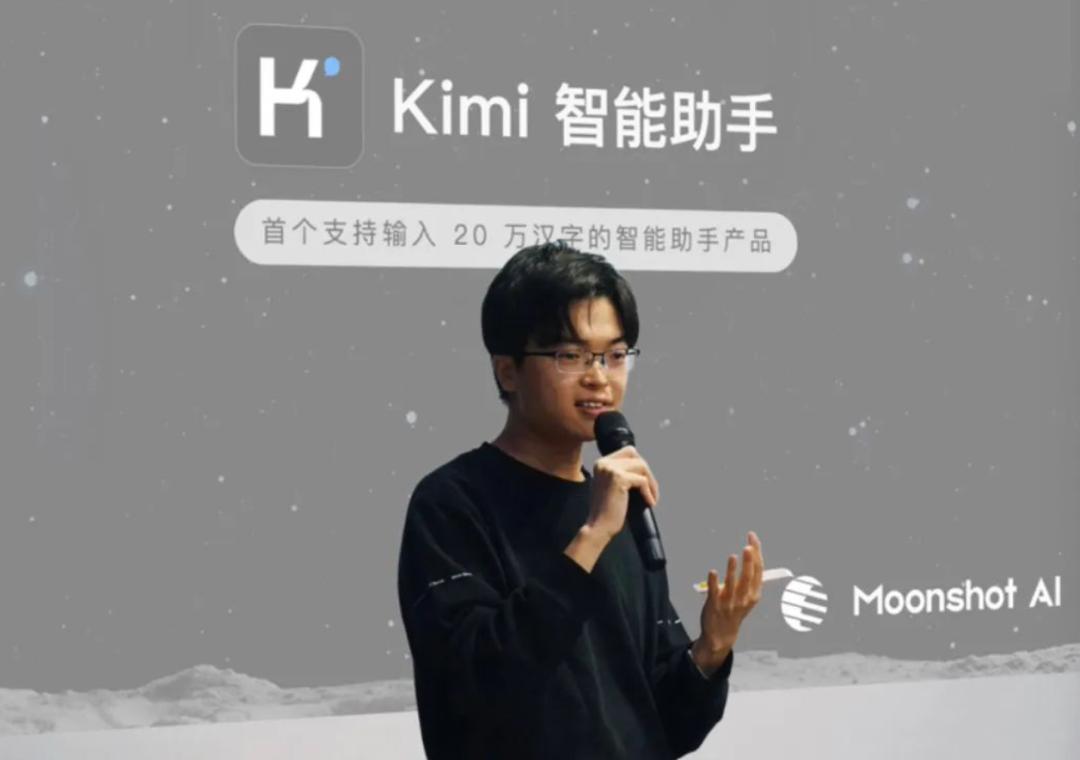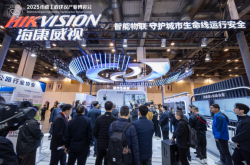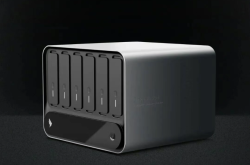Founder of Dark Side of the Moon Yang Zhilin and former investors "fall out", behind it are "fabulous wealth
![]() 11/13 2024
11/13 2024
![]() 528
528

Produced by Radar Finance, written by Mo Enmeng, edited by Shenhai
An arbitration case has caused a huge uproar in the domestic artificial intelligence industry.
On November 11, media reported that Yang Zhilin, founder of Dark Side of the Moon, and Zhang Yutao, co-founder and CTO, were recently brought to arbitration in Hong Kong. The applicants were some investors of Recycle Intelligence, a company they previously co-founded. At present, Dark Side of the Moon has entrusted a law firm to handle this matter, and the proxy lawyer said they would defend against it in accordance with the law.
According to media reports, this arbitration application may stem from the fact that Yang Zhilin and Zhang Yutao initiated financing and established Dark Side of the Moon before obtaining exemption letters of consent from multiple investors of Recycle Intelligence. The reason why the exemption letters were delayed may be that investors of Recycle Intelligence were dissatisfied with the shareholding ratio of Recycle Intelligence in Dark Side of the Moon.
Radar Finance learned that Dark Side of the Moon was established last March and launched its star product Kimi in October of the same year. The visit volume of this product once surpassed that of ERNIE Bot. With the injection of round after round of financing, the valuation of Dark Side of the Moon was pushed to a staggering height of $3.3 billion. In this capital feast, some "old shareholders" who failed to get on the fast train of wealth strove for more benefits and even "fell out" with their former partners, thus triggering this arbitration dispute.
In this dispute, Yang Zhilin, the founder of Dark Side of the Moon, is undoubtedly a high-profile figure. As one of the youngest founders of large AI companies in China, the post-90s entrepreneur Yang Zhilin has shown his potential as a top student since childhood. He was enrolled in Tsinghua University due to his award in the Olympiad during high school.
Afterwards, he studied successively at Tsinghua University and Carnegie Mellon University in the United States. During his doctoral studies in the United States, Yang Zhilin participated in the establishment of Recycle Intelligence. With the release of ChatGPT, the large model industry ushered in unprecedented development opportunities. Yang Zhilin keenly captured this opportunity, resolutely established Dark Side of the Moon, and quickly became an emerging AI star that attracted attention both inside and outside the industry. Being involved in the arbitration dispute made the subsequent development of Dark Side of the Moon more complicated.
The founder of Dark Side of the Moon, Yang Zhilin, was brought to arbitration by former investors
On November 11, a bombshell news broke out in the large model industry. According to "AnYong Waves" under 36kr, Yang Zhilin, founder of Dark Side of the Moon, and Zhang Yutao, co-founder and CTO, were recently brought to arbitration in Hong Kong. The relevant electronic arbitration application has been submitted to HKIAC (Hong Kong International Arbitration Center).
Some media quoted insiders as saying that the applicants who brought the arbitration against Yang Zhilin and Zhang Yutao were some investors of Recycle Intelligence, which they previously co-founded, including GSR Ventures, Matrix Partners China, Boyu Capital, Huashan Capital, and Wanwu Capital.
What exactly caused the founders and investors who once worked together to "fall out"? The aforementioned insiders told "AnYong Waves" that the reason for this arbitration may be that before obtaining exemption letters of consent from several investors of Recycle Intelligence (GSR Ventures, Wanwu Capital, Matrix Partners China, Huashan Capital, and Boyu Capital), Yang Zhilin and Zhang Yutao had already initiated financing and established Dark Side of the Moon.
According to public reports, Recycle Intelligence was originally co-founded by Yang Zhilin, Zhang Yutao, and Chen Qicong. It is reported that the aforementioned three are all technically oriented and met in the Knowledge Engineering Laboratory of Tsinghua University. In the early days of Recycle Intelligence, Yang Zhilin was mainly responsible for AI and products, playing more of a role as a chief scientist rather than the CEO of the company.
The CEO of Recycle Intelligence was Chen Qicong, who studied under Alex Smola, the head of AWS AI at Amazon and a giant in machine learning. Zhang Yutao, who studied under Professor Tang Jie, deputy director of the Department of Computer Science at Tsinghua University and an expert in data mining, served as CTO of Recycle Intelligence.
In terms of the company's equity distribution, the three adhered to the principle of equal distribution. Tianyancha shows that at the beginning of its establishment, the shares of Beijing Ruizhuke Intelligent Technology Co., Ltd., the operating entity of Recycle Intelligence, were equally divided among Yang Zhilin, Zhang Yutao, and Chen Qicong, with each holding 33.3% of the shares.
Currently, the shareholding ratios of Yang Zhilin, Zhang Yutao, and Chen Qicong in Beijing Ruizhuke Intelligent Technology Co., Ltd. have all dropped to 27.19%, while another co-founder who joined later holds 18.43% of the company's shares.
Radar Finance noticed that after its establishment, Recycle Intelligence has won the favor of many investors. Tianyancha shows that from 2018 to 2021, Recycle Intelligence successively completed Angel Round, tens of millions of yuan in Pre-A Round, tens of millions of yuan in A Round, $12 million in A+ Round, and $38 million in strategic financing.
With the completion of multiple rounds of financing, investors including Huashan Capital, GSR Ventures, Matrix Partners China, ZhenFund, Sequoia China, Boyu Capital, and Wanwu Capital became the "sugar daddies" behind Recycle Intelligence. However, it was not all the shareholders mentioned above who initiated the arbitration against Yang Zhilin and Zhang Yutao, but five investment institutions among them.
The conflict between Yang Zhilin and some investors of Recycle Intelligence mainly occurred during the establishment of Dark Side of the Moon, Yang Zhilin's second venture last year. Before obtaining exemption letters of consent from some investors, Yang Zhilin and Zhang Yutao had already initiated financing and established Dark Side of the Moon.
"AnYong Waves" learned from people close to the two companies that the reason why the exemption letters of consent were delayed may be related to the dissatisfaction of some investors of Recycle Intelligence with the shareholding ratio of Recycle Intelligence in Dark Side of the Moon.
"AnYong Waves" also revealed in its published article that as early as the first half of this year, several "old shareholders" of Recycle Intelligence had sent lawyer's letters to Yang Zhilin. Many well-known investors also participated in the mediation, but the two sides did not reach a settlement in the end.
Regarding the arbitration brought against Yang Zhilin and Zhang Yutao, David Morrison, a senior partner at Mingde Law Firm, the law firm entrusted by Dark Side of the Moon, said that his firm had accepted the entrustment of Yang Zhilin and Zhang Yutao and was concerned about the relevant arbitration matters. "We believe that this matter lacks both legal basis and factual basis, and our firm will raise objections in accordance with the law."
Did both sides "fall out" due to missing out on fabulous wealth?
An The undeniable background is ,Dark Side of the Moon has rapidly risen to become a top star enterprise in the domestic artificial intelligence field, and the rapid rise in its valuation may be the fuse that further intensified the contradiction between the two parties.
Radar Finance learned from the official website that Dark Side of the Moon was founded in March last year and is committed to exploring the optimal path for energy to intelligent transformation, promoting innovation in intelligent technology through in-depth co-creation with users. Immediately afterwards, Beijing Dark Side of the Moon Technology Co., Ltd. was officially registered.
Tianyancha shows that Yang Zhilin serves as the legal representative of the company and holds 78.968% of its shares, making him the beneficial owner and actual controller of the company. In addition, Zhou Xinyu, Wu Yuxin, Zhang Yutao, and Wang Zhen hold 10%, 5.957%, 5%, and 0.075% of the shares, respectively.
According to Dark Side of the Moon, the company's founding team can be described as star-studded. Its core members have participated in the research and development of multiple large models such as Google Gemini, Google Bard, Pangu NLP, and Wudao. Many of their core technologies have also been adopted by mainstream products such as Google PaLM, Meta LLaMa, and Stable Diffusion.
Although it has not been established for a long time, Dark Side of the Moon completed its layout from general large models to upper-layer applications in a short period. Last October, just over half a year after its establishment, Dark Side of the Moon announced a breakthrough in the long text field and launched Kimi, the first smart assistant product that supports input of up to 200,000 Chinese characters. In March this year, Dark Side of the Moon further announced the start of a 2 million-word internal test for Kimi smart assistant.
According to QuestMobile data, in March this year, the monthly active users of the Kimi smart assistant App reached 5.897 million, and the monthly active users of the Kimi smart assistant WeChat Mini Program exceeded 911,000. Meanwhile, data from AI product ranking (aicpb.com) showed that the web version of Kimi smart assistant recorded 20.04 million visits in April, an increase of 60.2% from the previous month, surpassing ERNIE Bot and ranking first among similar domestic products in terms of visit volume.
The aforementioned data undoubtedly demonstrates the strong growth momentum of Kimi in the market, making Dark Side of the Moon rapidly become a "hot cake" in the domestic AI track. Even Kimi concept stocks have become a hot pursuit in the capital market, with stocks such as Huace Pictures, IReader Technology, and Zhongguang Tianze once hitting the daily limit.
In fact, Dark Side of the Moon had already attracted the close attention of some investors even before it officially launched any products. Last June, media disclosed that Dark Side of the Moon had completed an Angel Round of financing close to RMB 2 billion. Well-known VCs including Sequoia China, Capital Today, ZhenFund, and Lisi Capital all placed bets on it.
Among them, Sequoia China and ZhenFund are the other two investment institutions that did not initiate arbitration against Yang Zhilin and Zhang Yutao this time. An AI investor once said that although Yang Zhilin had outstanding technical endowments, some investment institutions still lacked sufficient confidence in Dark Side of the Moon when it was first established due to his lack of sufficient business and management experience.
According to NetEase Tech, Zhu Xiaohu, a partner at GSR Ventures, once unequivocally stated that he would not invest in large AI companies in China. He believed that there would be no independent large model companies in five years because there was no business model.
In an interview with Jiemian News, Zhu Xiaohu also expressed "pessimism" about the final outcome of six independent large model startups, including AI Spectrum, BaiChuan Intelligence, ZeroOneThings, Dark Side of the Moon, Minimax, and JieYueXingChen, saying that the best outcome for the former would be to be sold to a large company.
However, Dark Side of the Moon not only created the star product Kimi but also ushered in round after round of financing. Last July, Meituan Dragonball, Xianghe Capital, and BlueRun Ventures all entered the market and became investors behind the A Round financing of Dark Side of the Moon.
In February this year, Dark Side of the Moon once again secured a new round of A+ financing exceeding $1 billion. Investors included Alibaba, Sequoia China, Xiaohongshu, Meituan, Lisi Capital, and many other new and old shareholders. After this round of financing, the valuation of Dark Side of the Moon reached $2.5 billion.
By August, Dark Side of the Moon once again gained recognition from investors. With the funding boost of over $300 million from investors such as Tencent, Gaorong Venture Capital, Alibaba, and 37 Interactive Entertainment, the valuation of Dark Side of the Moon was pushed to the level of $3.3 billion, which means that the valuation of Dark Side of the Moon increased by $800 million in just about half a year, with a growth rate of about 32%.
Some media claimed that among the AI "Six Little Dragons" composed of ZeroOneThings, MimiMax, BaiChuan Intelligence, AI Spectrum, JieYueXingChen, and Dark Side of the Moon, Dark Side of the Moon may have the highest valuation.
In the view of analysts, the fact that Yang Zhilin and Zhang Yutao were brought to arbitration by multiple investors from the Recycle Intelligence period may be closely related to the rapidly rising valuation of Dark Side of the Moon. Since the valuation of the new company far exceeded that of Recycle Intelligence, those "old shareholders" who failed to get on the fast train of wealth inevitably felt a huge psychological gap. In order to strive for more benefits, they even "fell out" with their former partners.
The "cheating" life of the post-90s top student
Compared with Wang Xiaochuan and Wang Huiwen, who have long been famous in the Internet era and are now shifting to the AI track, Yang Zhilin may be slightly less well-known to the public. However, in the eyes of professionals in the AI circle and venture capital circle, Yang Zhilin's recognition and attention in the industry are no less than the aforementioned two people.
Born in Shantou, Guangdong, Yang Zhilin is a promising post-90s entrepreneur. Looking back at Yang Zhilin's past resume, it is not difficult to find that he has shown his potential as a top student since childhood. During high school, Yang Zhilin studied at Jinshan Middle School in Shantou. At that time, without any programming background, he was selected to join the Informatics Olympiad training class based on his talent and interest.
In the subsequent National Youth Informatics Olympiad, Yang Zhilin won the first prize in the Guangdong region and thus obtained the qualification for guaranteed admission to Tsinghua University. Even without the guaranteed admission qualification, Yang Zhilin's college entrance examination score of 667 was actually enough to easily gain admission to Tsinghua University.
However, during his studies at Tsinghua University, Yang Zhilin did not initially major in a field closely related to artificial intelligence but majored in thermal energy. Gradually realizing that his ambition lay elsewhere, Yang Zhilin decisively changed his major to computer science in his sophomore year.
Yang Zhilin's teacher was Professor Tang Jie, the leader of the Knowledge Engineering Laboratory (KEG) of the Department of Computer Science at Tsinghua University, academic vice president of the Institute for AI Industry Research, and project leader of Wudao. During his school days, Yang Zhilin passed all programming courses with full marks, won numerous honors, and graduated with the first rank in his grade.
Subsequently, Yang Zhilin traveled to the Language Technology Institute (LTI) of Carnegie Mellon University (CMU) in the United States to pursue his Ph.D. under the supervision of Ruslan Salakhutdinov, the head of AI at Apple, and William W. Cohen, the chief scientist of Google AI.
In 2019, Yang Zhilin successfully obtained his Ph.D. in computer science from Carnegie Mellon University. In the same year, Yang Zhilin successively published two achievements, Transformer-XL and XLNet, as the first author, with Google Scholar citations approaching 20,000.
Among them, Transformer-XL became the first attention language model that comprehensively surpassed RNN, and the paper became one of the most cited papers at NeurIPS 2019 and ACL 2019. XLNet, on the other hand, surpassed Google's BERT model in 20 tasks and became an important academic achievement in the field of NLP.
It was also during his doctoral studies that Yang Zhilin embarked on his first entrepreneurial journey, participating as a co-founder in the establishment of Recycle Intelligence, a company whose business direction was to utilize NLP, speech, multimodal, and large model AI technologies to create "sales technology" solutions.
It is understood that Recycle Intelligence's products are currently widely used in industries such as banking, insurance, securities, automobiles, retail, real estate, education, consumer finance, and B2B. Companies such as Industrial and Commercial Bank of China, China Merchants Bank, PICC Property and Casualty Company Limited, China Pacific Insurance, Taiping Life Insurance, Vanke, 5i5j, Anjuke, SAIC Motor, and China Eastern Airlines are all its customers.
However, what truly made Yang Zhilin famous at the public level was his later establishment of Dark Side of the Moon. The time was reset to the day ChatGPT was released, and Yang Zhilin was extremely excited. Foreseeing the vast prospects of AI, Yang Zhilin soon had the idea of seriously establishing a company to do this.
In fact, the large model field has an extremely high demand for funds, and Yang Zhilin had very little time to establish Dark Side of the Moon. From the first day of his entrepreneurship, Yang Zhilin raced against time to find financing for his project.
Yang Zhilin once revealed in an interview, "We started focusing on the first round of financing in February 2023. If it was delayed to April, there would basically be no opportunity. However, if it was done in December 2022 or January 2023, there would also be no opportunity due to the pandemic, and people hadn't reacted yet – so, the real window was only one month.
Looking back, against the backdrop of tight timelines and formidable tasks, Yang Zhilin successfully and swiftly seized the opportunity. However, as Dark Side of the Moon evolved from its inception to rapid growth, some historical issues gradually surfaced, adding a few worries for Yang Zhilin.
It is worth mentioning that, concurrently with the arbitration controversy, "LatePost" reported that several heads of overseas products at Dark Side of the Moon had recently resigned to start their own businesses. In September this year, Dark Side of the Moon decided to stop updating two launched overseas products, Ohai and Noisee, temporarily scaling back its overseas to C applications. In response, Dark Side of the Moon stated that these two products were merely experiments and had not been officially launched, hence the quick adjustments; Dark Side of the Moon proactively chose to streamline its operations, focusing more on the development of Kimi.
What impact will this arbitration controversy have on Dark Side of the Moon? Radar Finance will continue to monitor the situation.




